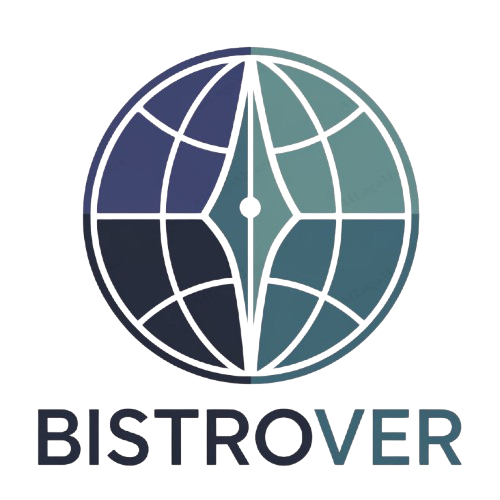Choosing the Right Protein Source for Your Goals: Animal-Based vs. Plant-Based Proteins
There are different goals when it comes to protein intake. Now, whether it’s losing weight, building muscle, or just generally preserving sound health, selecting the right source of protein is crucial. Choosing the right protein sources can make a significant difference in achieving your weight loss goals. In fact, incorporating high protein recipes for weight loss can help you feel fuller longer and maintain lean muscle mass during a calorie deficit. Let’s compare animal-based and plant-based proteins to see their benefits in terms of reducing weight and promoting general health, and provide some practical advice on what to choose based on your goal.
Understanding Protein Sources
Proteins are important macronutrients that play vital roles in muscle repair, immune functions, and energy production. They consist of amino acids, some essential (which can’t be produced by the body) and others non-essential (which can be synthesised by the body). When it comes to achieving weight loss goals, focusing on high protein recipes for weight loss can help increase satiety and reduce the overall calorie intake. The primary two sources of proteins are divided into animal-based and plant-based options, each offering distinct advantages depending on your dietary preferences and health goals.
Animal-Based Proteins: Benefits and Considerations
Animal-based proteins are obtained from meat, fish, poultry, dairy, and eggs. These are “complete proteins” because they contain all nine kinds of amino acids that the body must have.
- Advantages in Losing Weight: The bioavailability of some animal-based protein is also very high. For instance, chicken, fish and lean cuts of red meat have high values in bioavailability, which means these can be easily absorbed and used inside the body. Such a property can help with the retention of muscles along with satiety that helps control hunger, and it limits the consumption of calories overall. It was found that animal-based proteins may be good at helping for control of appetite and also for feelings of fullness throughout the day, which is a significant relationship associated with weight loss
- Nutritional Considerations: There are considerations with the animal-based protein for instance, red meat and processed meat like bacon and sausages have saturated fats and cholesterol, which increase the chances of heart disease. The dairy product, though high in protein, is very rich in saturated fats especially if taken in full fat products such as whole milk or full cream cheese. Choose lean cuts of meat, such as skinless poultry, fish, and low-fat dairy, to decrease saturated fat consumption yet still retain the advantages of complete proteins
Healthiest Animal-Based Protein Options for Weight Loss
- Chicken breast: A lower-calorie protein source that is higher in protein.
- Fish (such as salmon, trout): Salmon and trout contain omega-3 fats, which provide additional benefits besides muscle conservation.
- Eggs: Eggs constitute a complete protein source that offers essential vitamins, particularly B vitamins, and healthy fats.
- Low-fat dairy (including Greek yoghurt and cottage cheese): Rich in protein, and high in calcium, these sources help repair muscles and assist in building bones.
Plant-Based Proteins: Benefits and Considerations
The plant-based proteins can be found in sources that include legumes (lentils, beans), nuts, seeds, whole grains (quinoa, brown rice), and soy products (tofu and tempeh). They are known as “incomplete proteins” because they do not provide a majority of the amino acids.However, mixing different plant-based proteins throughout the day provides a complete amino acid profile.
Nutritional Considerations: There is the drawback for plant-based proteins, which have a lower bioavailability than their animal protein counterparts, so that the body might absorb them less efficiently. For instance, plant-based non-heme iron is less bioavailable than animal-based heme iron. However, balanced and diverse plant-based diets can compensate for this by offering adequate amino acids and micronutrients through legumes, whole grains, seeds, and nuts.
Animal vs. Plant Proteins for Weight Loss and Health
- Satiety and Appetite Suppression: Animal-based proteins have a higher fat content, so the former is less satiating than the latter. However, plant-based proteins usually have higher fibre content, which has been shown to suppress hunger pangs while lengthening the effect of satiety better
- Preservation: Both animal and plant-based proteins help preserve the muscle when losing weight; however, when it comes to whole proteins as in most animal-based sources (whey protein, eggs), they do a much better job of repairing and building muscles.
- Options like quinoa and tofu, which are plant-based, will help with the protein balance because they contain all the essential amino acids, assuming they are consumed with other sources of protein during the day.
- Health Considerations: Plant-based diets support lower inflammation, reduced risk of heart disease, and better long-term health outcomes compared to diets high in animal products.
- For those who care about their impact on the environment as well as lowering greenhouse gas emissions, a plant-based diet also may be the more sustainable option. On the other hand, animal-based proteins, such as lean fish, can provide omega-3 fatty acids that offer additional health benefits beyond muscle preservation.
How to Choose the Right Protein for Your Goals
If your goal is weight loss, plant-based proteins are a good choice for calorie control and hunger management. Legumes, seeds, and whole grains are a source to be included in every meal.
Final Considerations
The choice of a correct protein source depends on your particular needs and health considerations. Regardless of whether you go with animal-based, plant-based, or both mixed and matched, it’s critical to have a balanced approach to meet specific health and fitness needs.







